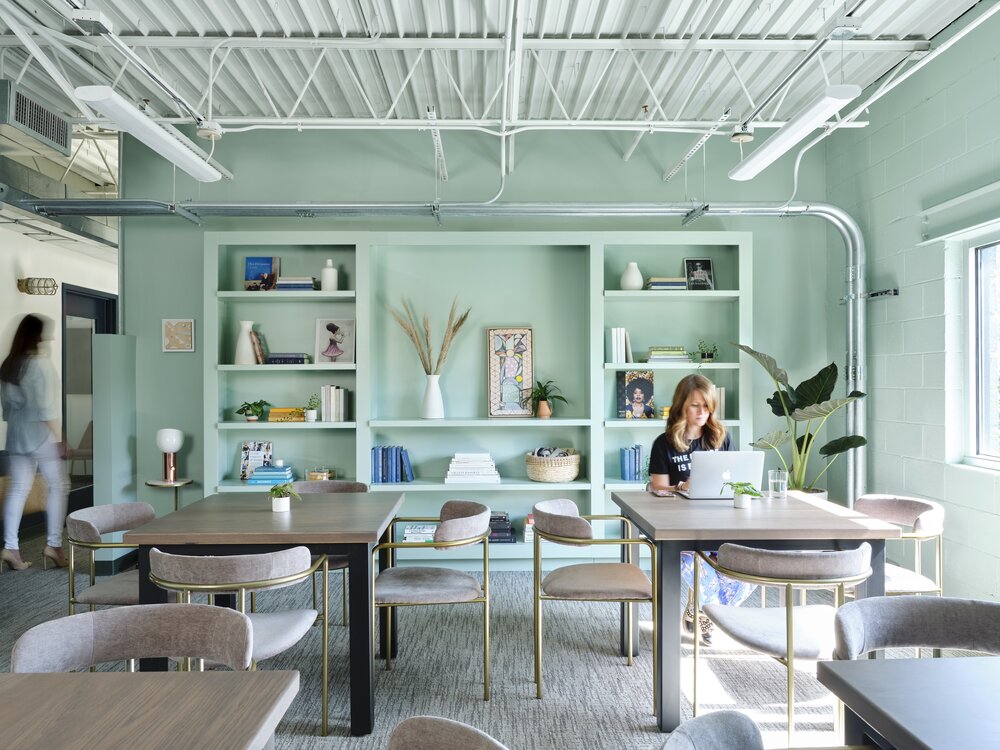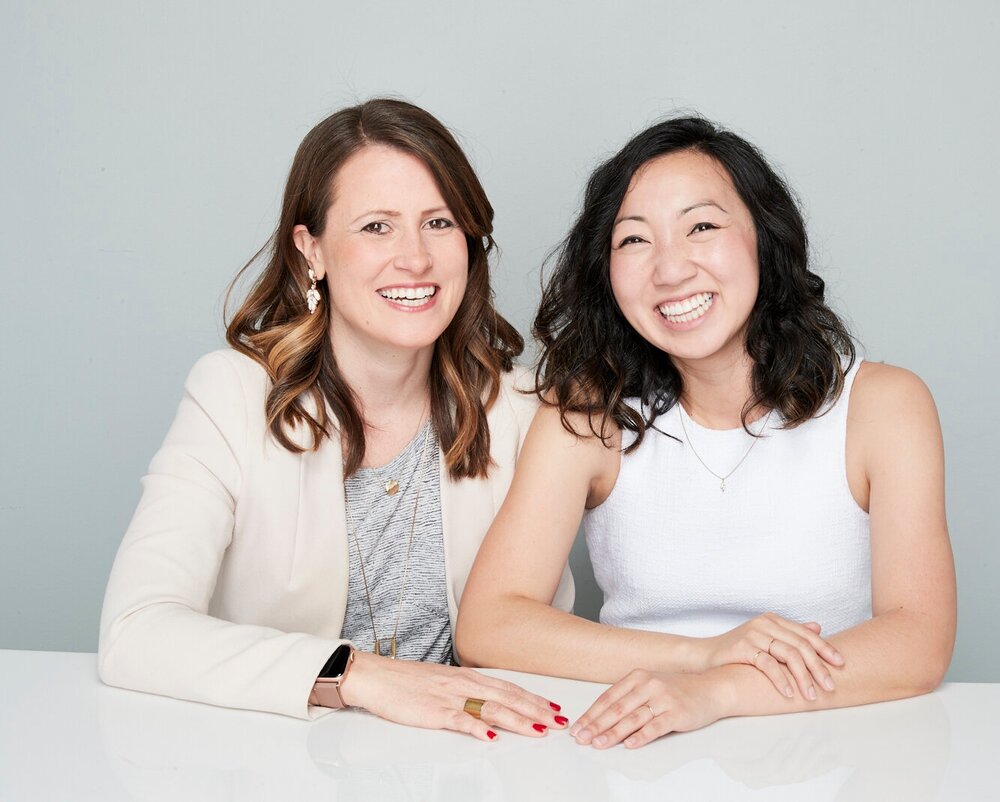 Land on the website of The Lola, and you’ll notice something right away.
Land on the website of The Lola, and you’ll notice something right away.
They misspelled women.
The Lola is an Atlanta-based womxn’s club and digital platform. We are a network of diverse, smart-minded womxn, allies, and accomplices who span multiple generations all coming together to connect, collaborate, grow and thrive.
It’s not a typo. It’s a statement.
“It was a small thing, but a huge decision to refer to womxn,” shared Co-founder Eileen Lee. “To us, it's inclusive to all those who are female-identifying.”
(For the purposes of this article, I’ll use the traditional spelling, but only so my software doesn’t have a heart attack.)
Lee and Co-founder Martine Resnick wanted to create a physical space—a community for women to come and feel like this was something designed for them.
 “We heard from so many women who said their offices don’t cater to them. They're in a male-dominated industry. And there is still a scarcity mindset to overcome, where others think there's only room for one woman at the table.”
“We heard from so many women who said their offices don’t cater to them. They're in a male-dominated industry. And there is still a scarcity mindset to overcome, where others think there's only room for one woman at the table.”
The 5,000 square foot space offers quiet work areas, a bar/café, private mother’s room, screening and theater area, a beauty room with six vanity stations, multiple conference rooms and a podcast studio. The furniture is specifically selected to welcome various body types. Purse hooks are numerous and low.
Again, these are small choices that make a big impact. They welcome everybody and every body.
“We wanted to allow for serendipitous connections—great connections made over in the cafe area or over at the bar,” Lee described. “A lot of members who initially may have thought they had to have a private workspace, can see how they can have the flexibility to host clients in a meeting, but also get work done in the main lounge. You can jump in a phone booth and go upstairs in the library if you need more quiet. Or you can reserve a meeting room.”
At The Lola, the culture drives the choices that the founders made, from the space to the types of members who join.
As Lee explained, “I tend to say we consider ourselves ‘coworking light.’ We don't have a receptionist, we don't have pumped-up technology or videoconferencing. We do have free coffee and tea, provided by women-owned businesses. We have snacks from a women-owned business.”
The Lola does have a sweet spot: connections.
“If you're new to Atlanta or maybe you’re switching jobs, leaving corporate to start something of your own or basically figure out a better life and career… We have success stories of women starting businesses with other women they've met at the Lola, hiring each other. Finding support and accountability. Those are the things that we love to see.”
From the beginning, the team makes sure that prospective members are aware of the fact that The Lola is a space for all women of all backgrounds, ages, and races.
“We try our best to see our space through different lenses. Our goal from the beginning has always been to have a very diverse audience, we want each woman to say ‘this feels like a space for me.’ We can talk about it all day long, but if someone who doesn't look like me comes in here and doesn't feel like this is the space for them, then we're not walking the walk.”
From a deep dive of anti-racist training and dialogue to an internal transformative justice program, The Lola takes inclusivity very, very seriously.
“We were intentional about it from the beginning. We had recruitment ambassadors who are women of color to help us expand our network when we first got started. We partnered with 50 black female entrepreneurs to figure out how to help and support the most under-resourced members. And we asked our members to expand their own networks. For example, we have a prospective new member—she's an amazing author and she's a white woman—so we challenged her and said, “Is there a woman of color author that you can also bring in with you?”
It takes at least twice as much work to be intentional. But Lee says coworking operators have to build it in from the beginning or it’s much harder later.
“You have to look at every aspect of your operation to make sure your values are reflected everywhere,” Lee said. “What are you putting out there in the world—from your website and social media—are you truly being inclusive with how you're speaking? What kind of language are you using? Hustle? Ninja? Killing it? We had an awesome communications consultant, Kristy Gomez, put together a brand and voice guide for us. It outlines how we speak, identifies our personas and makes sure it's inclusive.”
As the world continues to wrestle with remote and flex work shaped by COVID, Lee sees women being impacted most of all.
“Overall, women don’t prioritize what they need. It's literally the last thing we think about. I've seen it so many times when a man quits his job or they're doing a career-change, the first thing they do is sign up for a coworking membership. Women need to invest that money in themselves, and create the headspace they need to do big things. Because women need flexibility more than ever right now.”